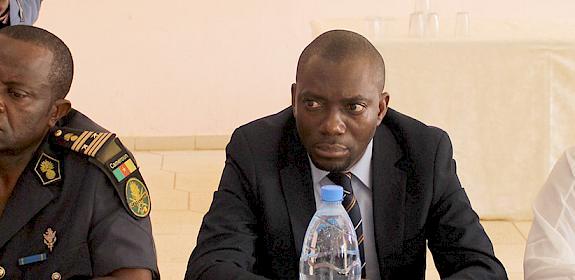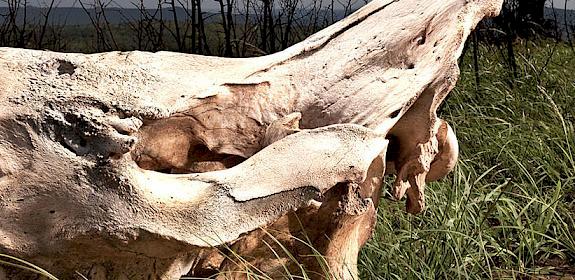Theft of rhino horns from police a huge setback to Mozambique’s law enforcement efforts
Mozambique, 1st June 2015—A police spokesman on Wednesday confirmed that 12 rhino horns had been stolen from a strong-room in police provincial headquarters in Matola, Maputo province, and a number of arrests, including government personnel, had been made in connection with the theft.
The horns were among the 65 confiscated less than a fortnight previously in Mozambique as part of a record seizure, alongside 1.1 tonnes of elephant ivory.
The seizure was originally heralded as a significant breakthrough in international efforts to clampdown on the criminal syndicates behind rhino poaching and the smuggling of horn from Africa to Asia, although considerable confusion still exists over the number and nationality of people arrested in connection with the record bust.
However, news of the police strong-room theft represents a serious setback in efforts to follow up the seizure with significant investigations that could help break a major trafficking network.
“TRAFFIC again urges Mozambique to seek the assistance of INTERPOL in providing the specialist support needed when significant seizures are made, to ensure that vital law enforcement opportunities are not squandered,” said Milliken.
“Mozambique should share with INTERPOL all evidence relating either to the original seizure or the subsequent theft.”
The theft is a significant blow to the newly elected government, which has publicly signalled its intent to address the country’s poor law enforcement record and corruption.
President Felipe Nyusi recently signed a memorandum of understanding on closer collaboration with neighbouring Tanzania to address cross-border crime, and while speaking at a police parade to mark the 40th anniversary of the creation of the Mozambican police force, President Nyusi reportedly said: “I cannot sleep when the statistics show an increasing number of police involved in crime.”
Mozambique has a poor law enforcement record and the country is widely considered the major conduit for the trafficking of rhino horns out of Africa.
“While there are encouraging signs that the political will exists to get to grips with the corruption and crime that is undermining Mozambican society, this latest law enforcement lapse will come as a huge setback,” Milliken.
“Mozambique now has an opportunity to act on its stated commitments to stamp out corruption and demonstrate to the world that it is serious about tackling wildlife crimes, but a failure to do so will result in a serious loss of credibility for the new government,” said Milliken.
Notes:
Previous enforcement lapses in Mozambique include the theft of wildlife products and the apparent complicity of government agencies.
On 27th February 2012, 266 pieces of elephant ivory, totalling 1,094.34 kg, were stolen from the central ivory stockpile in Maputo, which lies within the Ministry of Agriculture building on a busy downtown street in the bustling capital. The Ministry for Coordination of Environmental Affairs and the National Directorate of Environmental Management first reported the theft publicly in April 2012. No arrests were made and the case has never been solved.
Several instances of wildlife products finding their way back into illegal trade have been documented. In one notorious case, a Vietnamese national was arrested in late May 2012 with seven rhino horns at Maputo International Airport boarding a Kenya Airways flight to Nairobi. A few days later he was again arrested with seven rhino horns at Bangkok Airport following his arrival on a Kenya Airways flight from Nairobi.
Mozambique is also failing under its international obligations as a signatory to the Convention on International Trade in Endangered Species of Wild Fauna and Flora (CITES). Under CITES there is a mandatory requirement to report all government-held ivory stockpiles. Mozambique, an African Elephant range State, has failed to report its stocks in 2014 and 2015.
Mozambique is currently the subject of a CITES Decision requiring it to take steps to implement CITES provisions effectively related to rhinos, including the enactment and implementation of penalties to control wildlife crime effectively, as well as the development of a national rhino action plan. Progress on these is expected to be reported at the 66th meeting of the CITES Standing Committee in January 2016.
In April 2014, Mozambique signed a Memorandum of Understanding with neighbouring South Africa on engagement in wildlife management, in particular with respect to addressing the scourge of rhino poaching.



